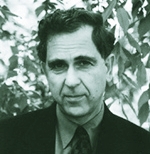
Shortly after the 2004 election, I mentioned to a friend that I had begun work on a book about liberalism and power. He said, “I feel better already. You must see some connection.”
The main connection I was thinking about, however, wasn’t about how liberals could obtain power. It was about how a liberal society and liberal politics create power—how they generate the capacity to realize the aims of liberty, justice, and security. Critics have often accused liberalism of being weak. But liberal governments have repeatedly proved stronger and more durable, in both war and peace, than their adversaries have expected. Liberalism doesn’t just stand for noble ideals; it also aims to promote the creation of the power and wealth that make freedom a realistic aspiration.
I particularly wanted to make this case because of the false claims about power, freedom, and security advanced by conservatives today. Through the Iraq War, disdain for international alliances, infringements on civil liberties, tax cuts favoring the rich, and other policies, the Bush administration and its supporters have claimed to be defending, exerting, and expanding America’s power, but they have actually dissipated and degraded it.
The problems go much deeper than the strategic errors that President Bush made in Iraq. They involve the basic theory of power—and of power’s relation to freedom—that underlies the contemporary conservative worldview. Liberalism has its own theory of freedom’s power, and a central purpose of my book is to explain that theory and to make the argument that it offers better guidance about how to deal with the world’s realities.
And, yes, if liberals can articulate why their ideas will make America and the world freer and secure, they will have a better chance of winning their fellow citizens’ trust—and finding their way back to power.
Next: the classical theory of freedom’s power.
Paul Starr
Labels: basic argument


